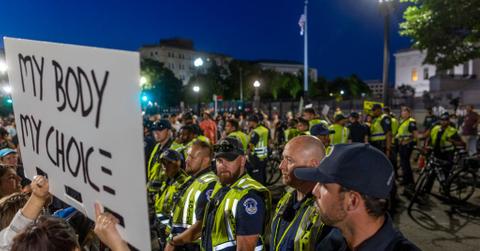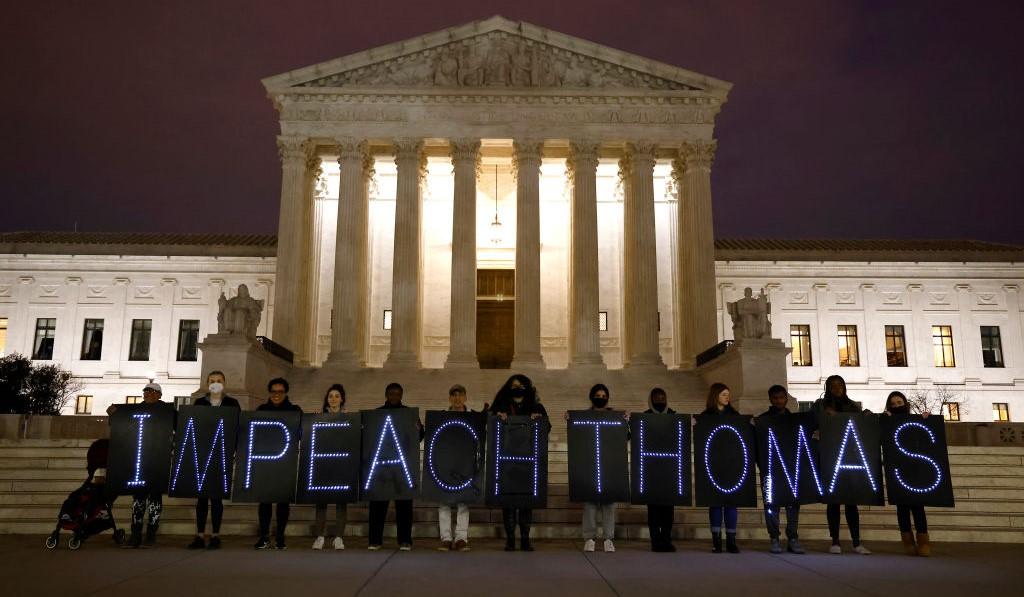A Contraception Ban Could Be Next in the U.S.
After the U.S. Supreme Court overturned Roe v. Wade and eliminated the federal right to abortion, a contraception ban may be next.
June 27 2022, Published 11:27 a.m. ET
After the U.S. Supreme Court overturned Roe v. Wade on June 24 and eliminated the constitutional right to abortion, many Americans fear what will come next. According to a concurring opinion from Justice Clarence Thomas, a removal of protections for contraception access should be on the docket.
Could a contraception ban really be next in the U.S.? It's completely plausible under the current Supreme Court, which maintains a Republican-appointed majority.
Justice Clarence Thomas's views on contraception
Both Thomas and Brett Kavanaugh, the latter of whom was one of former President Donald Trump’s appointments and found not guilty in a sexual assault trial, filed their own concurring opinions. Thomas suggested the Supreme Court should revisit previous decisions, including the right to same-sex marriage and contraception.
Is a contraception ban plausible?
Board-certified OB/GYN Jennifer Lincoln told reporters, “Next will be emergency contraception and IUDs, then all of hormonal birth control. It’s about complete reproductive control, so this is just the next logical step.”
An anonymous individual leaked the Supreme Court’s plan to vote on overturning Roe v. Wade prior to the ruling. Now that it has been officially overturned, 22 U.S. states have some sort of abortion ban in effect (including a general ban, trigger ban, pre-Roe ban, or six-week ban). Contraception could logically be the next target, particularly given the fact that many Evangelical groups campaign against birth control. Evangelicals and other conservative religious groups are a sizable portion of the anti-abortion and anti-contraceptive population.
If the Supreme Court votes to remove a person’s right to contraception, emergency contraception such as Plan B or Ella could likely be the first target due to the fact they end a pregnancy that has already started. Intrauterine devices (IUDs) and hormonal birth control could also be a target.
Like abortion, contraception is healthcare through and through, and it goes beyond family planning.
Oral birth control Yaz is the only medicine approved by the FDA to specifically treat PMDD (premenstrual dysphoric disorder). People with PMDD are seven times more likely to attempt suicide. Other painful, chronic conditions, like endometriosis and adenomyosis, often benefit from contraceptive treatments.
Is a vasectomy considered contraception?
The Students for Life of America has taken a stance against contraception that a woman or person with a uterus takes, calling them “abortifacients.” Naturally, the group hasn't taken a stance against male contraception, like condoms and vasectomies.
Vasectomies are technically a permanent method of contraception and have a 75 percent chance of a successful reversal in the first three years. The Supreme Court hasn't targeted male bodies or people with penises, and the focus has remained on controlling bodies with uteruses.
Since the Supreme Court’s plan to overturn Roe v. Wade first leaked, there has been an increase in searches and requests for vasectomies. If the U.S. removes contraception protections and states ban birth control, vasectomies will likely remain secure.


